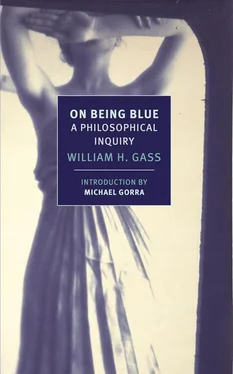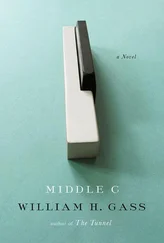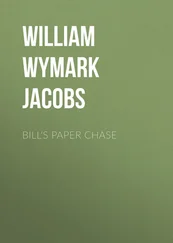‘It ain’t so bad,’ he whispered.
She was lying face up and hardly trembling, not offering to pull her leg away. The position she was tied in made her think of exercises she had heard were good for the figure. She smelled gun oil — the men who visited the room had guns — and a sour odor inside the mattress…. There was a shadow on the wall like a rocking chair; her fingers were going to sleep; she thought that a wet newspaper would be unbearable.
Then something happened to his face….
His arm went up quivering, over his head with the truncheon falling back, and came down hard and solid as a length of cold fat stripped from a pig, and the truncheon beat into her just above the knee; then into the flesh of her mid-thigh; then on her hips; and on the tops of her legs. And each blow quicker and harder than the last, until the strokes went wild and he was aiming randomly at abdomen and loins, the thin fat and the flesh that was deeper, each time letting the rubber lie where it landed then drawing the length of it across stomach or pit of stomach or hip before raising it to the air once more and swinging it down. It made a sound like a dead bird falling to empty field…. When he finally stopped for good she was bleeding, but not from any wound she could see.
This passage is impossible to overpraise… an example of total control: get the feel of it, Miss… a man’s cane in a crowd… a length of cold fat stripped from a pig… a dead bird falling to empty field… she thought that a wet newspaper would be unbearable.
When a character will not oblige by using a truncheon as a penis, the author must manage the shift himself. Flaubert directs our eyes to the room in which Emma Bovary commits her adulteries, and has the sense, so often absent in his admirers, to be content with that.
The warm room, with its discreet carpet, its grey ornaments, and its calm light, seemed made for the intimacies of passion. The curtain-rods, ending in arrows, their brass pegs, and the great balls of the fire-dogs shone suddenly when the sun came in. On the chimney between the candelabra there were two of those pink shells in which one hears the murmur of the sea if one holds them to the ear.
A muff, a glove, a stocking, the glass a lover’s lips have touched, the print of a shoe in the snow: how is it that these simple objects can receive our love so well that they increase it? I answer: because they become concepts, lighter than angels, and all the more meaningful because they began as solids, while the body of the beloved, dimpled and lined by the sheeted bed, bucks, sweats, freezes, alters under us, escapes our authority and powers, lacks every dimension, in that final moment, but the sexual, yet will not remain in the world it’s been sent to, and is shortly complaining of an ache. The man with his fetish, like a baby with its blanket, has security — not the simple physical condition (with locks on the doors who is safe?) but the Idea itself. Those pink shells, the curtain-rods ending in arrows, the great balls of the fire-dogs: how absurd they would be in reality, how meaningless, how lacking in system, all higher connection. It’s not the word made flesh we want in writing, in poetry and fiction, but the flesh made word.
‘Léa. Give me your pearls. Do you hear me, Léa? Give me your necklace.’
And shortly this remarkable book has begun, like a head between breasts, to surround us with Colette’s unsurpassed sensuality.
There was no response from the enormous bed of wrought-iron and copper which shone in the shadow like a coat of mail.
‘Why don’t you give me your necklace…?’
As the clasp snapped, the laces on the bed were roused and two naked arms, magnificent, with thin wrists, lifted two lovely lazy hands.
‘Let it alone, Chéri…’
The images are chosen as the pearls were: the bed, the light, the sheets, the pearls, the laces which rouse…
In front of the pink curtains barred by the sun he danced, black as a dainty devil on a grill. But as he drew near the bed he became white again in silk pyjamas above doe-skin mules.
There is anger in the eyebrows knotted above his nose, a mutinous mouth, the deep bed like a warm pond…
He opened his pyjamas on a chest that was lusterless, hard and curved like a shield: and the same pink high-light played on his teeth, on the whites of his black eyes and on the pearls of the necklace.
Not a single indecency defines this indecent scene.
Colette has the cat’s gaze. Unhurried contemplation is her forte. Hunger cannot give us such precision.
Meanwhile the shadows lengthened on the beach; the blackness deepened. The iron black boot became a pool of deep blue. The rocks lost their hardness. The water that stood round the old boat was dark as if mussels had been steeped in it. The foam had turned livid and left here and there a white gleam of pearl on the misty sand.
The nouns in this passage are all nailed too firmly to their the s; otherwise Virginia Woolf’s construction here is sensuous in the same way as Colette’s: observant, thoughtful, loving, calm.
• • •
Pink and white and the blackbird black of Chéri’s glistening hair are the colors Colette has chosen for Léa’s and his encounter — pink, black, and white, and the copper decoration of the bed — but blue is our talisman, the center of our thought. Yet what blue? which? the blue that settles in the throat before the cough? that rounds from our mouth like a ring of smoke as we announce A noir, E blanc, I rouge, U vert, O bleu? Not the blue of place names like Blue Island or Blue Bay. The Blue Hens Chickens. Not the blue of all the fish or flowers which have obtained it, the trees, the minerals, or the birds, not even the blue of blue pigeon, the sounding lead, which is none of these. Perhaps it is the blue of reality itself:
Blue is the specific color of orgone energy within and without the organism . Classical physics tries to explain the blueness of the sky by the scattering of the blue and of the spectral color series in the gaseous atmosphere. However, it is a fact that blue is the color seen in all functions which are related to the cosmic or atmospheric or organismic orgone energy:
Protoplasm of any kind, in every cell or bacterium is blue. It is generally mistaken as ‘refraction’ of light which is wrong, since the same cell under the same conditions of light loses its blueness when it dies.
Thunder clouds are deeply blue, due to high orgone charges contained in the suspended masses of water.
A completely darkened room, if lined with iron sheet metal (the so-called ‘Orgone Room’), is not black, i.e., free of any light, but bluish or bluish-gray. Orgone energy luminates spontaneously; it is ‘luminescent.’
Water in deep lakes and in the ocean is blue.
The color of luminating, decaying wood is blue; so are the luminating tail ends of glowworms, St. Elmo’s fire, and the aurora borealis.
The lumination in evacuated tubes charged with orgone energy is blue.
(Wilhelm Reich: The Orgone Energy Accumulator — Its Scientific and Medical Use )
The word itself has another color. It’s not a word with any resonance, although the e was once pronounced. There is only the bump now between b and I , the relief at the end, the whew. It hasn’t the sly turn which crimson takes halfway through, yellow’s deceptive jelly, or the rolled-down sound in brown. It hasn’t violet’s rapid sexual shudder, or like a rough road the irregularity of ultramarine, the low puddle in mauve like a pancake covered with cream, the disapproving purse to pink, the assertive brevity of red, the whine of green. What did Rimbaud know about the vowels we cannot also find outside the lines in which the poet takes an angry piss at Heaven? The blue perhaps of the aster or the iris or the air a fist has bruised?
Читать дальше












